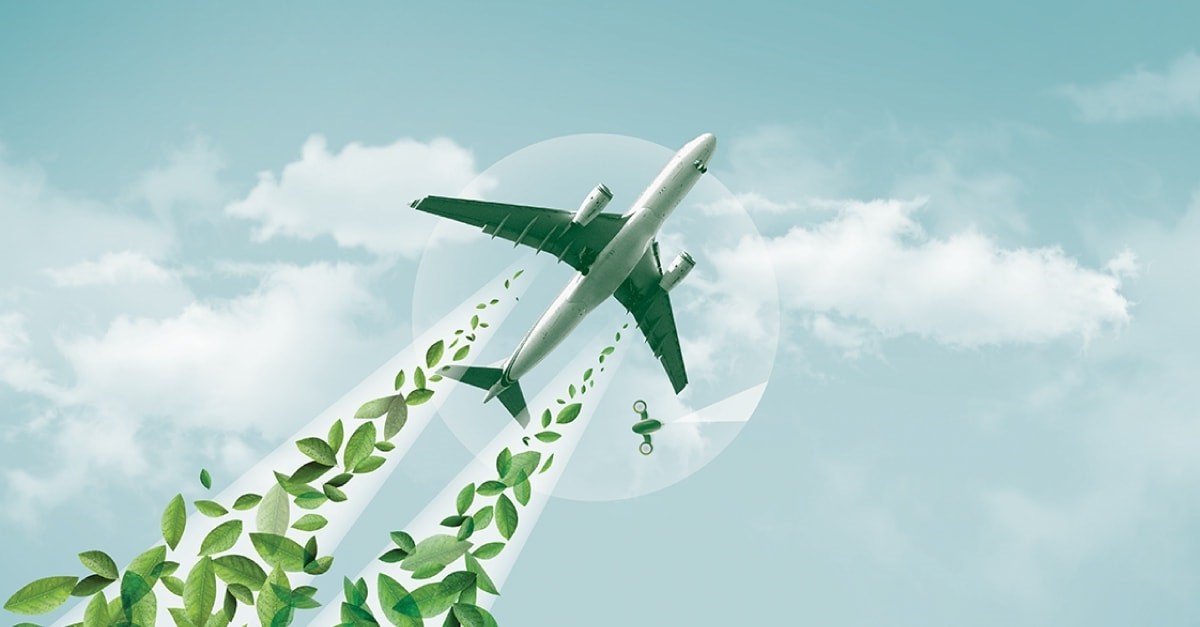
Airline sustainability goals are more than just buzzwords; they represent a significant shift in how airlines operate. Why are airlines focusing on sustainability? The aviation industry contributes to global carbon emissions, and with increasing environmental awareness, there's a push to reduce this impact. Airlines are adopting various strategies, from using biofuels to investing in more efficient aircraft. These efforts aim to lower carbon footprints and promote greener skies. What are the key sustainability goals? They include reducing emissions, minimizing waste, and enhancing fuel efficiency. Understanding these goals helps us appreciate the steps airlines take to protect our planet. Let's dive into 14 intriguing facts about these sustainability efforts.
Key Takeaways:
- Airlines are making big promises to reduce their impact on the environment, like using greener fuel and modernizing their fleets. This will help make air travel more eco-friendly for the future.
- By teaming up with other organizations, airlines are working together to create a more sustainable future for air travel. They're also finding ways to cut down on waste during flights.
Airline Sustainability Goals: Aiming for a Greener Sky
Airlines around the world are setting ambitious sustainability goals to reduce their environmental impact. These initiatives are crucial for combating climate change and ensuring a cleaner future for air travel. Here are some fascinating facts about these efforts.
Carbon Neutrality Targets
Many airlines have pledged to achieve carbon neutrality within the next few decades. This means balancing the amount of carbon dioxide emitted with an equivalent amount removed from the atmosphere.
- Delta Air Lines aims to become carbon neutral by 2030. They plan to invest in sustainable aviation fuel, carbon offset programs, and more efficient aircraft.
- British Airways has committed to net-zero carbon emissions by 2050. Their strategy includes modernizing their fleet and investing in carbon capture technology.
- United Airlines plans to reduce 100% of its greenhouse gas emissions by 2050 without relying on traditional carbon offsets. They focus on sustainable fuel and innovative technologies.
Sustainable Aviation Fuel (SAF)
SAF is a game-changer in reducing aviation's carbon footprint. It can cut emissions by up to 80% compared to conventional jet fuel.
- Lufthansa has been using SAF on some of its flights since 2011. They are one of the pioneers in adopting this greener fuel.
- KLM Royal Dutch Airlines operates flights partially powered by SAF. They aim to increase the use of SAF in their operations significantly.
- Qantas has committed to using 10% SAF in their fuel mix by 2030. They are investing heavily in developing and sourcing sustainable fuel.
Fleet Modernization
Newer aircraft are more fuel-efficient and produce fewer emissions. Airlines are investing in modernizing their fleets to meet sustainability goals.
- American Airlines has one of the youngest fleets among major U.S. carriers. They continue to replace older planes with more efficient models.
- Air France is phasing out older aircraft and replacing them with newer, more efficient ones. This move is part of their broader sustainability strategy.
- Singapore Airlines has invested in the latest generation of aircraft, which are significantly more fuel-efficient than their predecessors.
Waste Reduction Initiatives
Reducing waste is another critical aspect of airline sustainability. Airlines are implementing various measures to minimize waste generated during flights.
- JetBlue has eliminated single-use plastic items on its flights. They have replaced them with biodegradable or reusable alternatives.
- Emirates has introduced a recycling program for in-flight waste. They aim to recycle as much waste as possible, including plastic, glass, and aluminum.
- Cathay Pacific has committed to reducing single-use plastics by 50% by 2022. They are also exploring ways to minimize food waste on their flights.
Partnerships and Collaborations
Airlines are partnering with various organizations to enhance their sustainability efforts. These collaborations help in sharing knowledge and resources.
- Iberia has partnered with Repsol to develop and produce SAF. This collaboration aims to create a more sustainable fuel supply chain.
- Qatar Airways is working with the International Air Transport Association (IATA) to develop industry-wide sustainability standards. This partnership aims to create a more sustainable future for aviation.
The Future of Airline Sustainability
Airlines are making big strides in sustainability. From reducing carbon emissions to investing in biofuels, the industry is working hard to lessen its environmental impact. Electric planes and improved fuel efficiency are on the horizon, promising even greener skies. Recycling programs and eco-friendly materials are becoming standard, showing a commitment to the planet.
Passengers can also play a part by choosing airlines with strong sustainability records. Every small action, like offsetting carbon footprints or packing light, helps. The journey to a sustainable future is ongoing, but the progress is undeniable.
In the end, the combined efforts of airlines and passengers will make a significant difference. The skies are looking greener, and the future of air travel is bright. Keep an eye out for these changes next time you fly.
Frequently Asked Questions
Was this page helpful?
Our commitment to delivering trustworthy and engaging content is at the heart of what we do. Each fact on our site is contributed by real users like you, bringing a wealth of diverse insights and information. To ensure the highest standards of accuracy and reliability, our dedicated editors meticulously review each submission. This process guarantees that the facts we share are not only fascinating but also credible. Trust in our commitment to quality and authenticity as you explore and learn with us.


